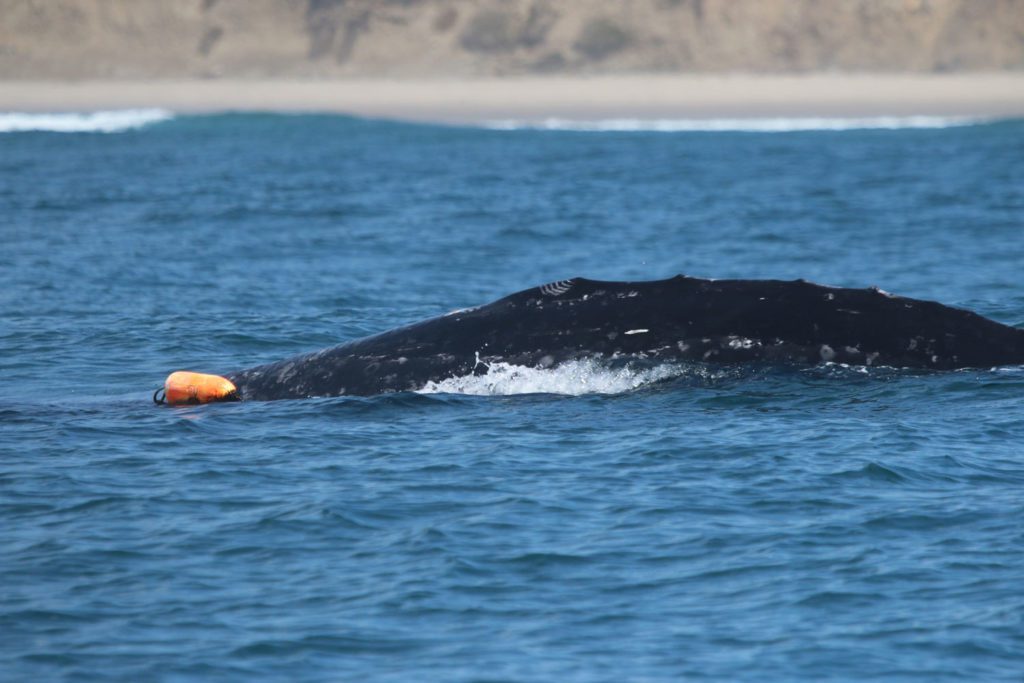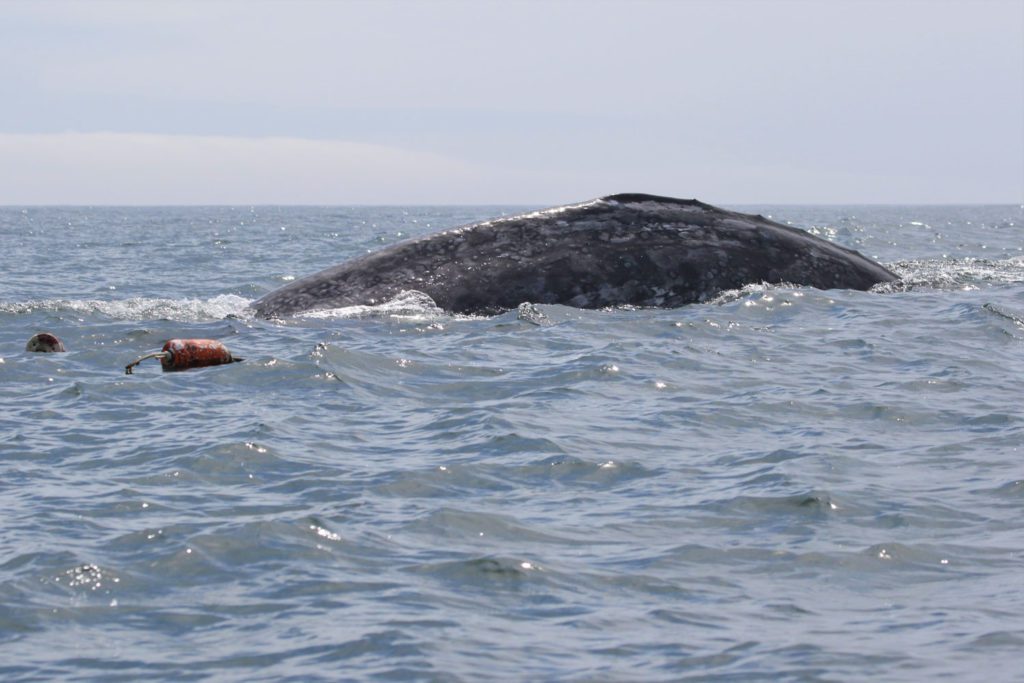Impacts of Fisheries Entanglements
Many of the gray whales we study in Oregon waters have scars from previous entanglements in fishing gear. One of the most frequent scars we see is around the tail right before the fluke; this is a stopping point for line as it slides down the whale’s body and gets stuck at the wide fluke. Fortunately, some whales can somehow “shake” this gear, leaving just the scar behind, but we don’t know how many whales do not survive entanglements like a tail wrap or worse. Roller Skate is a whale we saw entangled in 2019 and then resighted 2020 with a damaged fluke, but we have not seen her since and do not know if she survived this injury.

While many baleen whales off the US West Coast are susceptible to entanglement in fishing gear, gray whales are particularly vulnerable because their nearshore habitat overlaps with a high level of commercial and recreational Dungeness crab fishing effort. We often watch as whales swim right past pots and lines as they forage. Also, gray whales feed benthically and do a lot of twisting and turning underwater to capture their food. Both of these behaviors make them vulnerable to becoming entangled in line on the bottom or mid-water as they feed.
We are working with the Oregon Dungeness crab fishing fleet and the Oregon Department of Fish and Wildlife to find ways to reduce overlap between whales and fishing gear. In this project, we are gaining a better understanding of whale distribution patterns in Oregon waters and comparing that to fishing effort to find ways to reduce entanglement risk to whales.

If you come across an entangled whale, there are several ways in which you can help...
- Report it as soon as possible to the Entanglement Reporting Hotline (1-877-767-9425) and the U.S. Coast Guard (VHF Ch. 16).
- Keep your distance – entangled whales are likely distressed and may act unpredictably so please do not closely approach the whale or attempt to disentangle it yourself.
- Take videos and/or photos from a safe distance. This evidence can aid trained responders in helping the entangled whale and provide information that can help reduce these entanglements in the future.
For more information regarding large whale entanglements, please visit: https://www.fisheries.noaa.gov/west-coast/marine-mammal-protection/west-coast-large-whale-entanglement-response-program#how-you-can-help
